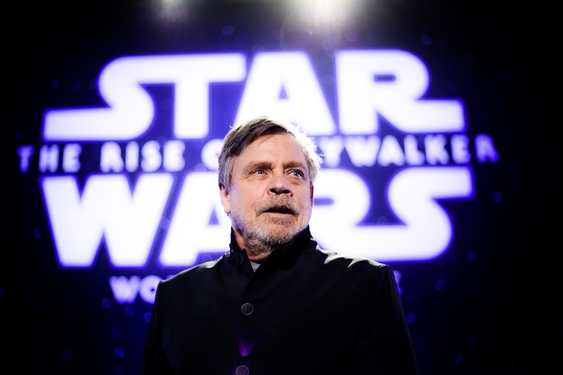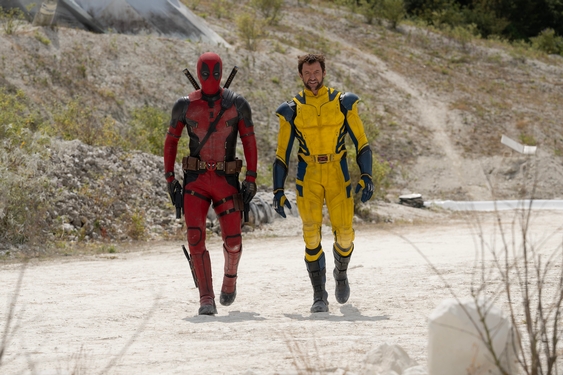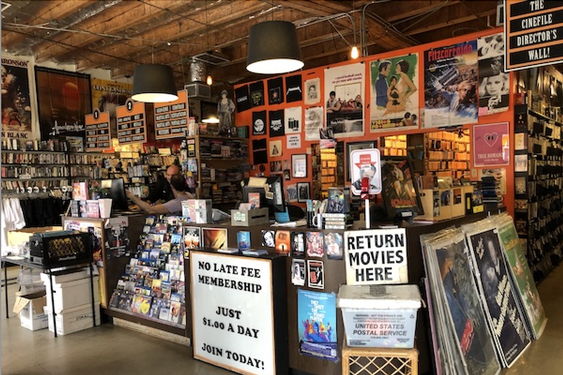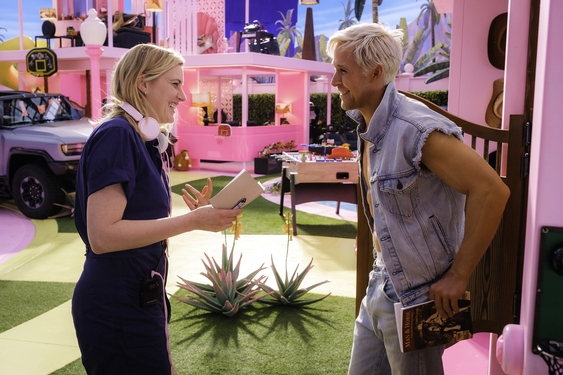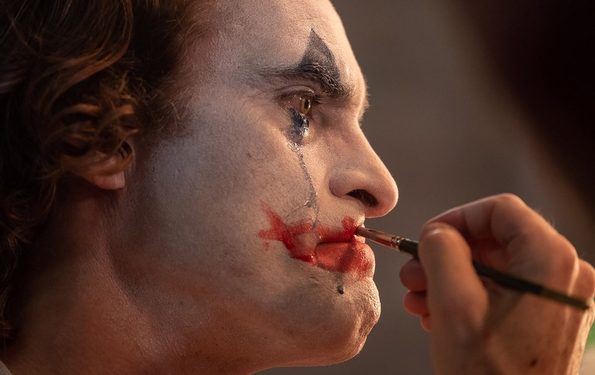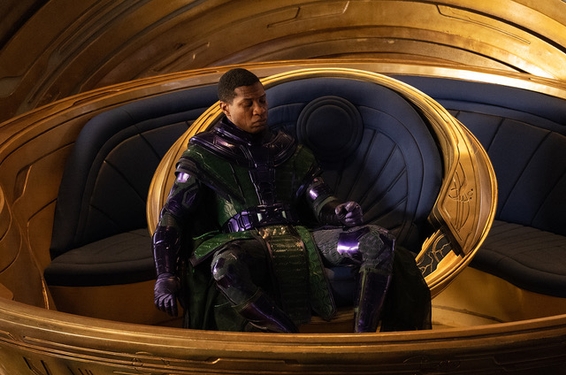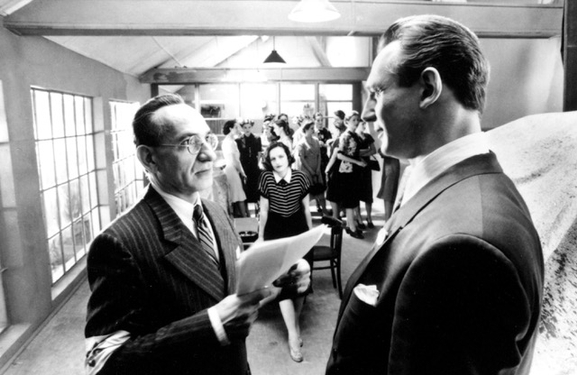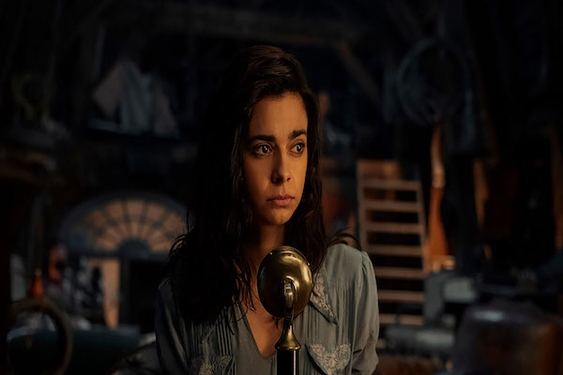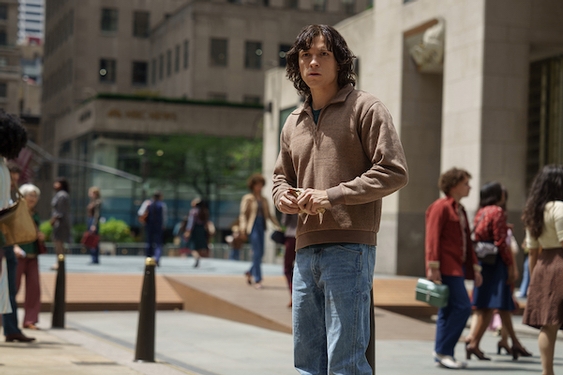Here's how movies get made sometimes: Actor Daniel Craig was at a party in New York City. He had knocked back a few drinks and was feeling a bit buzzed when he spotted his friend and fellow Brit Sam Mendes, who had directed him in 2002's Road to Perdition.
"Sam had just gotten there and was completely sober, and I wasn't," Craig recalls. "We got to talking about movies, and he told me how much he had enjoyed Casino Royale. And suddenly I found myself telling him how great he would be if we made another one, and would he want to direct it? I went above and beyond my job as an actor, but the offer just came out anyway."
Mendes, Oscar-winning director of American Beauty and Revolutionary Road, indulged his tipsy friend. "I said 'Of course!' in a kind of jovial, sure-thing-buddy! kind of way. To be honest, I had never thought about the Bond series seriously before. But then I went home and started thinking about it. I had been wanting to go back to England and make an English film and work with Judi Dench again. I had been wanting to shock myself out of the things I had gotten used to doing and try my hand at action. If I hadn't gone to that party, we probably wouldn't be having this conversation. But suddenly it seemed like a great idea."
The only catch? Producers Barbara Broccoli and Michael G. Wilson, the keepers of the 007 screen rights, were the only ones with the authority to hire a director.
"Daniel called me a day later a bit shame-faced," Mendes says. "He said 'You remember what I said to you the other night? I'm not sure I'm entitled to offer you that job. But would you like to meet Barbara and Michael?' "
The deal moved quickly. Broccoli and Wilson brought their usual squad of stunt men and action choreographers and assistant cameramen. Mendes handpicked cinematographer Roger Deakins (No Country For Old Men), composer Thomas Newman and production designer Dennis Gassner. Everyone collaborated on the casting of new characters, which included Ben Whishaw (Cloud Atlas) as a younger incarnation of the gadget-guru Q, Ralph Fiennes as a not-entirely-trustworthy British government honcho and Javier Bardem as the bleached-blond, ambisexual Silva - a villain who, unlike most other Bond bad guys, has more personal motives than taking over the world.
Mendes is the primary reason why Skyfall (which also features Albert Finney in a small but critical role) has the starriest of any Bond cast to date.
"I called Ralph to talk about being in a Bond movie, but he didn't sound that excited," Mendes says. "When we had lunch, he told me he assumed I wanted him to play the villain, and he had just spent a decade playing Voldemort in the Harry Potter movies. But once I told him who I had him in mind for, he was thrilled.
"Javier was a little trickier. He said 'I love the idea, I love the cast and I love your work. But I'm not sure about the role yet. Can we talk?' A lot of what you see of Silva onscreen came from rehearsals and screen tests. Javier is such a remarkably playful actor. He loves to experiment with the way he looks and moves and talks. He doesn't take any detail for granted. This is the first movie I've made in my career where all my first choices said yes. I wanted to have a true high-level ensemble, unlike any you've seen in a Bond movie."
Bardem, who won a Best Supporting Actor Oscar for his indelible turn as the murderous Anton Chigurh in No Country for Old Men, says he was initially skeptical of playing a Bond villain until Mendes laid out exactly what he had in mind.
"I've been watching James Bond movies since I was 12," Bardem says. "Some are good, some are not. But there's a reason why the series has stuck around for 50 years. This script just struck me as a really strong, bold, daring story that also happened to be a 007 movie. And Sam convinced me we would be allowed to take chances as actors. He wanted to try different things. He wanted to give Silva a certain quality that makes people uncomfortable - not frightening or scary but just discomfort. He wanted people to feel creeped out when they look at him. And when you see the movie, you understand why."
All that acting stuff may be fine and good. But no one going to see Skyfall is expecting Chekhov, and Mendes pulls off several set pieces - a 15-minute chase sequence involving motorcycles and speeding trains that opens the film and a brutal fistfight shot in one uninterrupted take against a backdrop of neon-lit Shanghai - that reveal the director is just as good at choreographing physical mayhem as he is at working with actors. And unlike most modern-day action pictures, in which editing speed renders the visuals into a blur, you can follow what's happening onscreen.
"I wanted to make sure there was never a point in the movie where we were stuck in one single linear chase," Mendes says. "For example, in the opening scene, Bond is chasing (the villain) Patrice, someone else is chasing Bond and M (Judi Dench) is watching everything from MI6 headquarters, so we have three different elements at play. You can control the rhythm of an action sequence without having to resort to rapid-fire editing. You just cut away to another character.
"Some of the most impressive action sequences in any movie of the last 10 years were directed by Paul Greengrass (The Bourne Ultimatum, Green Zone). But you can't just borrow what he does as a style. It's a particular language that he knows how to speak. He grew up making documentaries, and that's how he sees film in his head. I see action in a much more classical way. I have to shoot and stage the action in the same way I've staged my other movies. I just have to cut much faster. Hopefully it'll be exciting! Otherwise we're in trouble."
What most distinguishes Skyfall from all other Bond pictures may be the film's melancholy undertone. This is a story about the old vs. the new, about tradition giving way to innovation and invention, and the way in which technological advances in global warfare have forced established agencies to keep pace or risk becoming outdated.
"I'm very conscious of putting both sides of the argument into the movie," Mendes says. "There are a lot of young new characters, and there are a lot of old values and loyalties. We took a risk by having Judi Dench quoting Tennyson in the middle of the movie when she says, 'We are not now that strength in which in the olden days moved Heaven and Earth. But that which we are, we are.' "
"You could say that of the entire west of the moment - Europe and America," Mendes says. "It's difficult to admit to the waning of the world's political strength. But that doesn't mean you should not be proud of who you are and be honest about it, because there's a lot to embrace and admire. The true argument of Skyfall, I think, is Bond as a personification of that idea."
(c)2012 The Miami Herald
Distributed by MCT Information Services



